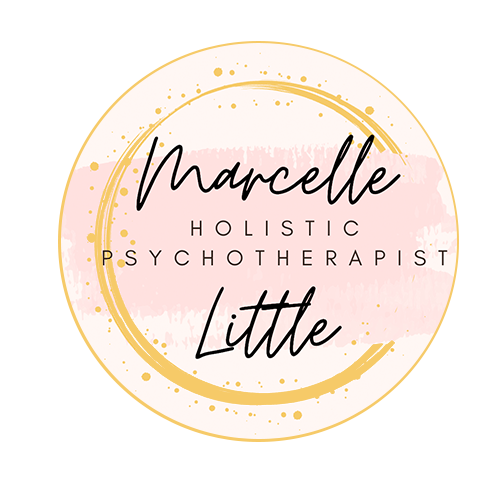12 Ways Depression Counseling Can Transform Your Relationships
Depression often casts a long shadow—not just over our inner world, but over the relationships that mean the most to us. It can distort how we perceive ourselves and others, making connection feel difficult or unsafe. Fortunately, therapy can help lift that weight.
As a psychotherapist who specializes in somatic therapy, EMDR (Eye Movement Desensitization and Reprocessing), parts work, and depth-oriented psychotherapy, I support clients in exploring the roots of their depression while equipping them with practical, embodied tools to build healthier relationships.
Here are 12 transformative ways depression counseling can help shift your relationships—from the inside out:
1. Building Trust Through Vulnerability
Therapy offers a sacred space to practice vulnerability without judgment. From a parts-work perspective (such as Internal Family Systems), we explore protective parts that may fear intimacy or openness—and learn to build trust with them.
Somatic practices support this process by helping clients feel safe in their bodies while expressing emotions. As vulnerability becomes safer in therapy, it also becomes more accessible in relationships, creating space for authentic connection.
2. Improving Communication Skills
When you're stuck in depression, even basic communication can feel exhausting. Through therapy, you can learn to identify what you feel and need—often using somatic cues and internal dialogue with parts that may feel silenced or ashamed.
Using tools from EMDR and parts work, you can begin to reprocess beliefs like “I don’t matter” or “I’ll be rejected if I speak up.” As these beliefs soften, your voice becomes clearer and more empowered.
3. Cultivating Empathy and Understanding
In depth-oriented work, we often explore how early attachment wounds or intergenerational patterns affect how we relate to others. Understanding your own emotional landscape makes it easier to understand others’.
Through resourcing techniques (often used in EMDR), clients build emotional resilience and capacity to sit with others’ emotions without shutting down or taking on too much. This expands your ability to give and receive empathy.
4. Identifying Patterns of Behavior
Whether you tend to people-please, shut down, or lash out when overwhelmed, these patterns often originate from earlier experiences or inherited trauma.
In our work together, we use somatic tracking and parts mapping to recognize these patterns—not with shame, but with curiosity. This awareness helps you make new choices that support intimacy rather than sabotage it.
5. Setting Healthy Boundaries
Depression often thrives where boundaries are unclear. Many people are conditioned to suppress their needs to maintain harmony. In therapy, we explore the roots of these patterns and reclaim your right to say no, to ask for space, and to advocate for your needs.
Boundaries become not just an act of self-protection, but a declaration of self-worth.
6. Developing Coping Strategies Together
In session, you’ll learn practical tools—like grounding techniques, bilateral stimulation (used in EMDR), and breathwork—to help you stay regulated in triggering moments.
We also explore how to share these tools with partners or loved ones, co-creating rituals of connection and calm. When you regulate together, your relationship becomes a safe haven.
7. Finding Shared Goals and Values
Sometimes depression clouds your sense of what matters most. Depth-oriented therapy can reconnect you to your inner values and purpose. From there, we explore how to align your relationships with those values.
This might look like honoring your need for emotional safety, cultivating spiritual connection, or reevaluating relationships that no longer align.
8. Enhancing Emotional Regulation
Somatic therapy is particularly effective for emotional regulation. Together, we tune into body cues—tightness in the chest, heat in the face, a racing heart—and work to down-regulate the nervous system.
This embodied awareness helps you respond rather than react, leading to more thoughtful and loving interactions.
9. Encouraging Accountability and Growth
Depression can sometimes obscure our impact on others. In therapy, we gently explore this, fostering a sense of personal responsibility without shame.
EMDR helps reprocess painful memories or narratives that may keep you stuck in cycles of self-blame or denial. As these soften, accountability becomes a tool for growth—not punishment.
10. Validating Your Experiences
So many clients tell me: “No one ever really listened before.” Depression counseling offers deep validation, especially for those whose emotional pain was minimized or dismissed growing up.
Parts work honors the different facets of you—your sadness, anger, fear, protector parts—and welcomes them all. As you feel more seen in therapy, you become more confident advocating for your needs outside it.
11. Fostering Conflict Resolution Skills
From a somatic and relational lens, we explore how conflict shows up in your body—Do you freeze? Flee? Fight? Fawn?
With this awareness, we practice new responses grounded in safety and presence. We might use role play or imagery to build confidence. The goal isn’t to avoid conflict but to move through it with clarity, courage, and compassion.
12. Creating a Support System
Depression often brings isolation. In therapy, we explore how to rebuild or strengthen your support system—gently addressing the fears or internal beliefs that may resist connection (“I’m too much,” “No one wants to help me”).
We look at both internal and external resources: the supportive parts of you and the people in your life who truly get it. You don’t have to do this alone.
12. Creating a Support System
Healing depression is not just about feeling better—it’s about relating better. The work we do together goes beyond symptom relief. It’s about creating relationships rooted in authenticity, safety, and self-worth.
Whether you're looking to improve romantic relationships, deepen friendships, or reconnect with yourself, this kind of therapy can support you in becoming more embodied, empowered, and emotionally free.
If you're ready to take the next step, I’d be honored to support you.

